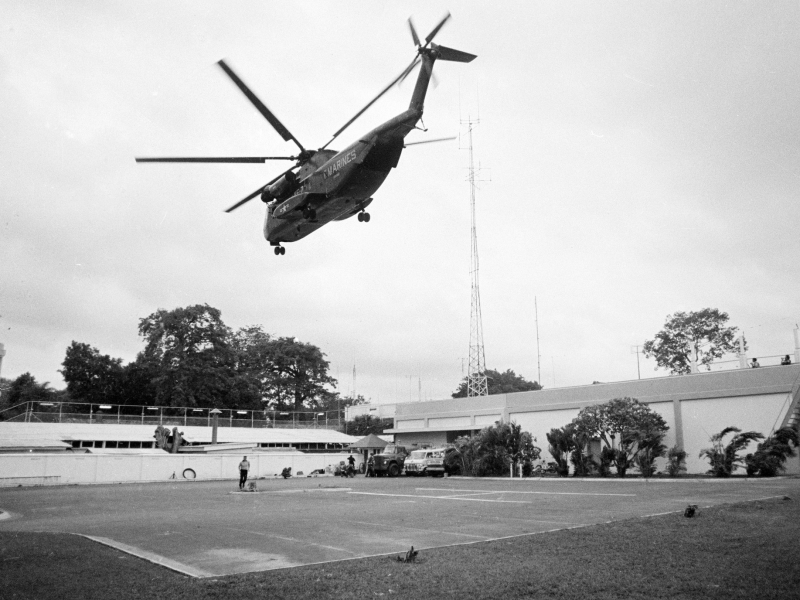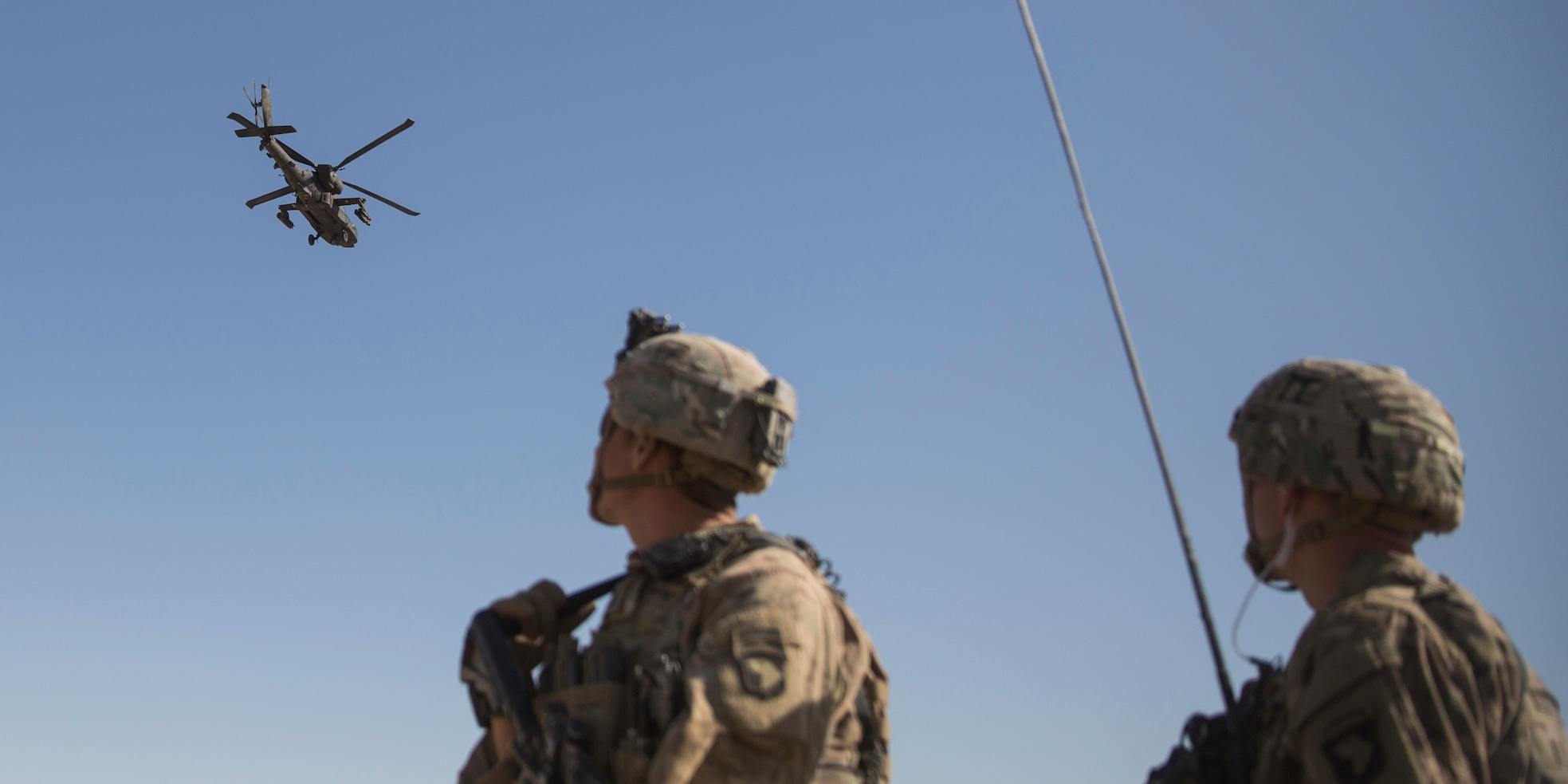- Despite all of the evidence to the contrary, the Trump administration continues to reject the idea Afghanistan is America’s “forever war” as the conflict nears its 17th anniversary.
- Experts say America is losing the war even as the Pentagon contends increased military pressure will help spark peace talks.
- Research shows the war has reached its deadliest point in years.
- A US soldier on his 13th deployment overseas was killed in an insider attack in Afghanistan on Monday.
Command Sgt. Maj. Timothy Bolyard was on his 13th deployment overseas when he was killed in an insider attack in Afghanistan on Monday.
Bolyard, who was 42, had served in the US Army for 24 years and was less than two months away from coming home and retiring, according to his son. The following day, Army Staff Sgt. Diobanjo Sanagustin died in a non-combat incident at Bagram Airfield, becoming the seventh US service member killed there so far in 2018, fighting in a war that has largely been forgotten by the US public and that experts say America is losing.
These deaths are another sign the war is not going well for the US as the Trump administration continues to avoid the subject or downplay the situation on the ground by pointing to signs of progress even as the death toll spikes higher. President Donald Trump is reportedly so eager to find a way out that he’s asking anyone around, including his 27-year-old personal assistant, for military advice.
“Nobody really wants to come to grips with this war – particularly within the Pentagon or this administration,” said Anthony Cordesman, one of three influential defense experts who view the war as all but lost. “They’re letting it slide out of visibility.”
The war is as deadly as ever
Last year, Trump announced a new strategy in Afghanistan, which involved increasing US troop presence by several thousand, ramping up the US bombing campaign against the Taliban, and increased focus on training and assisting local forces.
During a surprise visit to Kabul in July, Secretary of State Mike Pompeo claimed the strategy was working and suggested it was pushing the Taliban toward embracing a peace process.
But the numbers surrounding the conflict paint a different picture.
The Taliban controls or contests nearly half of all the country's districts and the Islamic State also has a foothold in the country.
There are currently around 15,000 US troops stationed in Afghanistan. Their presence serves as a tenuous support system for a weak, corrupt Afghan government, which would undoubtedly fall if the US military suddenly pulled out.
Safety can't even be guaranteed in the capital, which is frequently the site of bombings and other deadly violence.
Meanwhile, recent research suggests the total number of battle deaths in Afghanistan, including civilians and combatants on both sides, will soon surpass 20,000 in 2018. Based on this data, the war is at its deadliest point in years.
Trends suggest that the total number of battle deaths in Afghanistan will exceed 20,000 this year, including civilians and combatants on both sides. Historical data is flawed, but the war may be growing more intense than anything since the 1980s. https://t.co/ac7K73CZjM pic.twitter.com/qiweTv8I8M
— Graeme Smith (@smithkabul) July 23, 2018
'I can't guarantee you any timeline or an end date'
Despite all of the evidence to the contrary, the Pentagon and Trump administration continue to reject the idea Afghanistan is America's "forever war" as the conflict nears its 17th anniversary.
Chairman of the Joint Chiefs of Staff Marine Gen. Joseph F. Dunford Jr. in late August claimed he didn't believe the US would have an "enduring large military commitment."
Simultaneously, Defense Secretary James Mattis conceded the Afghanistan conflict is "not an easy fight," but pushed back against the notion the Taliban is routinely overpowering local forces trained by the US.
"If you look at where the Taliban were and what they were claiming they were going to do two years ago, one year ago, they have not succeeded in taking down these towns and holding these towns," Mattis said at the time.
But despite such assurances the US military and Trump administration still struggle to offer specifics on how long the US might remain in Afghanistan.
Army Gen. Austin Scott Miller, the new commander of US and NATO troops in Afghanistan, in June said he could not guarantee "any timeline or an end date" regarding America's role in the conflict.
'We are losing, if we have not already lost'
As the war in Afghanistan has dragged on, historians and foreign policy analysts have often compared it to the Vietnam war.
Benjamin Hopkins, a professor in international affairs and history at George Washington University who specializes in Afghanistan, says policy-makers continue to look back to the devastating, humiliating conclusion to America's war in Vietnam as they seek to wrap up the conflict in Afghanistan.
"I always tell my students that I think the iconic image of the chopper taking off from the US embassy in Saigon in 1975 is emblazoned in policy-makers' collective consciousness, and they are bound and determined not to have such a image - even if the outcome is the same," Hopkins told Business Insider.

In this context, it's not surprising to Hopkins the government isn't being particularly forthcoming about the state of the war.
"Since early into the Obama administration, there has been a consensus amongst the US government and more broadly the American political establishment to play down this war," Hopkins said.
"When, after all, was the last time Afghanistan made front page news? Yet it is the longest and, inflation adjusted, one of the most expensive wars in American history. And one we are losing, if we have not already lost," Hopkins added.
'Nobody wants to admit this is a war of attrition'
Cordesman, the Arleigh A. Burke chair in strategy at the Center for Strategic and International Studies, says there isn't as much "folly" surrounding Afghanistan as there was with Vietnam when it comes to the government's approach.
But he added there's a general reluctance to acknowledge what the conflict really is: a war of attrition.
"Nobody wants to admit this is a war of attrition," said Cordesman, an expert on the Middle East who has advised the Defense and State departments on Afghanistan.
Wars of attrition generally end when both sides get exhausted and one side "unexpectedly breaks," he said, adding there's no way of knowing when that might occur.
"None of this has a clear or predictable outcome and then the question comes to be, 'Is this war of attrition really worth the cost?' And that's a basic question you have to keep asking," Cordesman said.
But Trump administration is seemingly determined to avoid this question.
"This isn't so much the forgotten war but the unreported war, not necessarily in the press, but nobody really wants to come to grips with this war - particularly within the Pentagon or this administration. They're letting it slide out of visibility," Cordesman said.
'It isn't so much that people don't care, it's they don't have to care'
Cordesman pointed to the growing disconnect between the public and military as a large part of the problem.
"You have such a tiny fraction of Americans who now assume the risk for everyone. It isn't so much that people don't care, it's they don't have to care," Cordesman said.
"People are taking those who are off on their second or third tours for granted," Cordesman added. "You're asking a hell of a lot of a very few people. Being thanked for your service is a kind of cold thanks when you're coming home from the fights against extremism."
'The US is largely irrelevant to the issue at this point'
Andrew Bacevich, a professor of history and international relations at Boston University and retired Army colonel who fought in Vietnam, somewhat echoed these sentiments.
"The difference between Vietnam and Afghanistan is that the American people cared about the Vietnam War," Bacevich said. "They don't care about the war in Afghanistan."
At the end of the day, Bacevich says it's up to the Afghan government and Taliban to bring peace to the country.
"I expect that the war there will end when the Taliban and the Afghan government decide to negotiate a peace," Bacevich said. "The US is largely irrelevant to the issue at this point."
The US, Russian, and Afghan governments have all made efforts in recent months to spark peace talks with the Taliban, which has at times seemed open to such outreach.
At the same time, history offers many reasons to be skeptical of these developments, particularly as the Taliban has made major gains over the past year and staged devastating attacks in multiple provinces even within the past few weeks.


